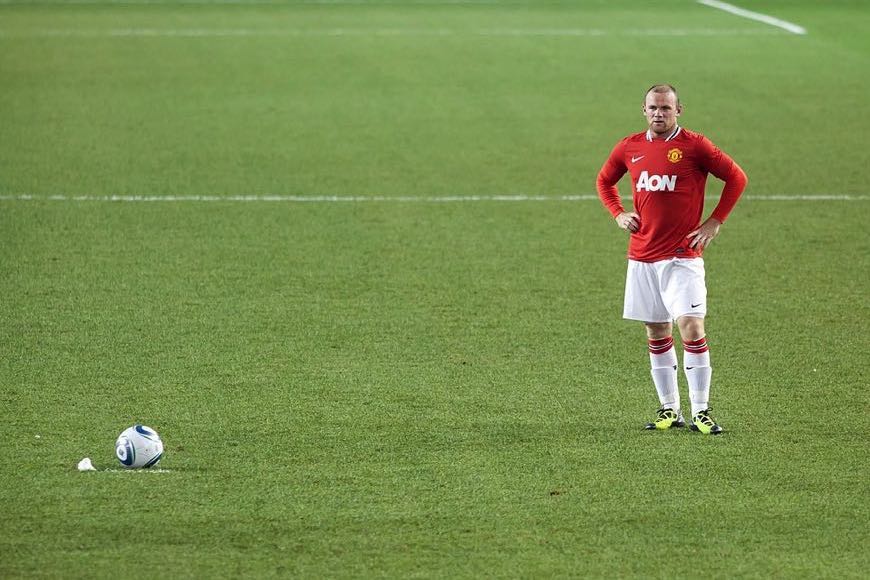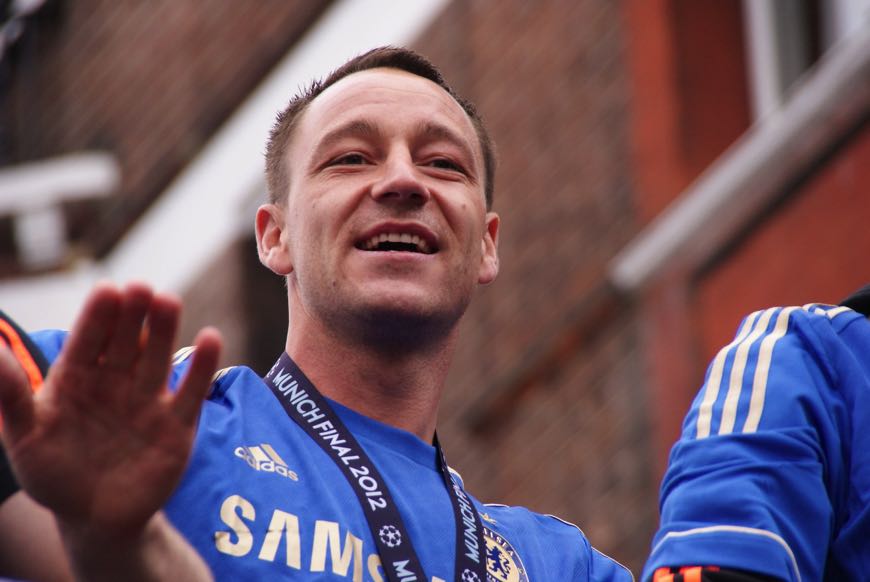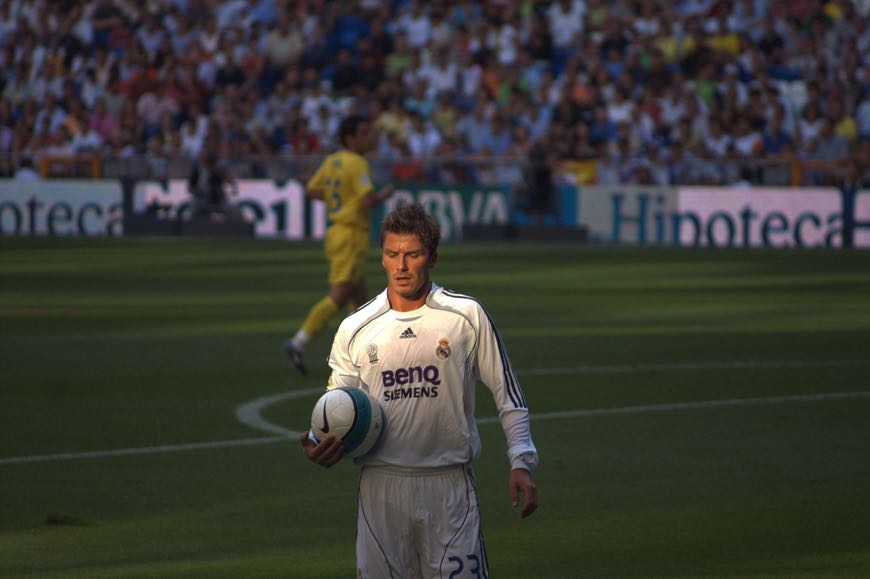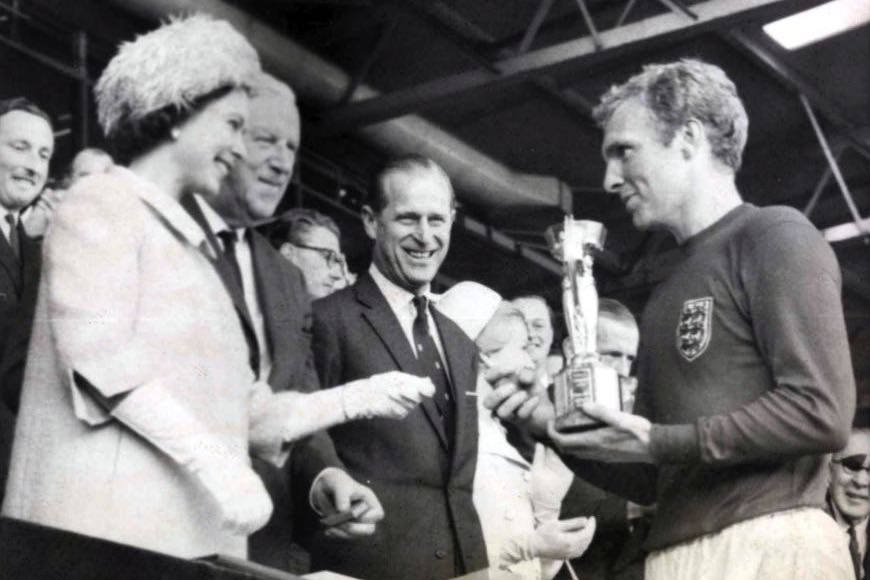
For many players, one of the biggest honours that they could hope to enjoy is to wear the armband of their national side. There have been countless people who have had that experience during their lives, which we will look at in a bit more detail here. It took until after the end of the Second World War for the captaincy to become something that a player would bear for a longer period of time, so for that reason we have limited our more in-depth look to the players of the post-war era. At the end of this page, you will find a table of all of the players who were officially the England captain.
Where it comes to the role itself, there are numerous responsibilities that the England captain takes on, which have doubtless changed since Cuthbert Ottaway became the first man to be given the role. Obviously, they need to decide upon the coin toss at the start of the game, as well as present the opposition with a pendant to make the occasion. They are also responsible for looking after team morale when the side goes away on international duty, alongside the likes of welcoming new players to the setup. If there is a major tournament, the captain is also something of a standard-bearer for the national side.
Below you’ll find a full run down of all of the post-war captains. And if you’re looking for the list in it’s entirety, you’ll find it at the bottom of the page.
Harry Kane

Harry Kane was born in Leytonstone on the 28th of July 1993, joining his local side Ridgeway Rovers before spending some time at Arsenal. In 2004, he eventually joined Tottenham Hotspur, the club where he would make his name. His first game for England’s senior side came in 2015, having made his way through the youth ranks there. Ahead of the 2018 World Cup, Kane was named England captain and led by example, ending the tournament as the top goalscorer. He was also captain when the Three Lions finished as runners-up in 2022, as well as at Euro 2020.
Jordan Henderson

Sunderland-born Jordan Henderson was part of his hometown club’s youth setup before making it into the first team in 2008. In 2011, Liverpool bought him and he eventually took over from Steven Gerrard as the club captain, going on to win everything there was to win in the sport. Having joined England’s setup at the Under-19s level, he became part of the first-team in 2010, being named England Player of the Year in 2020, becoming the first person to earn the title at senior and Under-21 level. He had been captain briefly in 2017 and 2018.
Wayne Rooney

When Wayne Rooney broke into the Everton team in 2002, having come through the youth ranks there, it was evident that he would go on to greatness. Becoming Manchester United’s all-time leading goalscorer certainly ticks the box, whilst his presence in the England team showed him to be one of the best players of his generation. He made his England debut when he was just 17, also becoming the country’s youngest-ever goalscorer. Named England Player of the Year four times, it is perhaps no surprise, then, that he was named the country’s captain in 2014.
Steven Gerrard

There is perhaps no finer example of a player who led by example when playing football than Steven Gerrard, almost single-handedly dragging Liverpool to every piece of silverware that the club won during his time at Anfield. Sadly, he wasn’t able to take England to any kind of silverware whilst playing for the Three Lions, making his debut against Ukraine in 2000. His first international goal came in a famous 5-1 win over Germany in a 2002 World Cup qualifier, serving as the vice-captain before being handed the captaincy in his own right in 2010, keeping it until his international retirement.
John Terry

John George Terry made his way through the West Ham United youth system before switching to Chelsea in 1995. He went on to become one of the London club’s greatest ever players and captain during the period of success they enjoyed under the ownership of Russian billionaire Roman Abramovich. Having made his England debut in 2003, he was made captain in 2006, but had it taken off him by Fabio Capello in 2010 when he was alleged to have had an affair with a teammate’s wife. He was later given it back, but stripped of it again after racially abusing Anton Ferdinand.
Rio Ferdinand

As with John Terry, Rio Ferdinand came through the West Ham United youth system and played for the first-team before moving to Leeds United. It was at Manchester United that he made his name as one of England’s best-ever defenders, later being given the captaincy when John Terry lost it for the first time. Ferdinand had played for England since the Under-18s stage, going on to make more than 80 appearances for the Three Lions, which made him the country’s second-most capped black player after Ashley Cole. He scored three goals for the international team.
Sir David Beckham

Known playfully as ‘Goldenballs’ by the British press, David Beckham was born in Leytonstone and was part of the Tottenham Hotspur youth setup before joining Manchester United. Having played for the Red Devils and Real Madrid, he won almost everything there was to win in the game at club level whilst also playing for England from the Under-18s stage onwards. He was made the Three Lions’ captain in 2000, having been sent off in a last 16 match against Argentina in the 1998 World Cup. He became the first England captain to be sent off in a match against Austria in 2005.
Tony Adams

Tony Alexander Adams was born in Romford in 1966, joining the Arsenal youth system and also playing for England from the Under-17 stage onwards. He joined the Arsenal senior team in 1983 and began playing for the Three Lions proper four years later. His debut came against Spain, soon taking part in the European Championship of 1988 where he scored one of only two goals netted by England. He was made England captain in 1995, but lost the role a year later to Alan Shearer, then briefly regained it in 2000 before making the decision to retire from football.
Alan Shearer

Alan Shearer is arguably one of the most famous Geordies around, having been born in Newcastle in 1970. He made his breakthrough in football with Southampton, then moved to Blackburn Rovers, winning the Premier League in 1995. A year later, he moved to his boyhood club and saw out his professional career there. He captained England at both the 1998 World Cup and the 2000 European Championship, having won the Golden Boot at Euro ’96. Across more than 60 appearances for the Three Lions, Shearer scored 30 goals, retiring from the international game in 2000.
David Platt

The career of David Platt is a fascinating one, making his way through the Manchester United Academy before having spells at the likes of Aston Villa and Juventus. He joined Arsenal in 1995, having broken through into the England first-team six years earlier. He was made England captain in 1993, after having been taken to the 1990 World Cup and the Euros two years later. He also captained the club on and off for many years, taking over when Tony Adams was injured, for example. He was said to have led the club by ‘quiet example’, showing others what was expected.
Stuart Pearce

Born in the London suburb of Shepherd’s Bush in 1962, Stuart Pearce played for clubs such as Wealdstone and Coventry City before making his name across more than 400 games for Nottingham Forest. He joined the England Under-21 setup in 1986, but only played one game at that level before becoming part of the first team. Nicknamed ‘Psycho’ because of his style of play, his best-known moment in an England shirt came when he missed a penalty in the shootout against West Germany at the 1990 World Cup. He released his demons when he scored a penalty against Spain at Euro ’96, celebrating in front of the supporters.
Gary Lineker

It tells you something about Gary Lineker’s ability in front of goal that he was the top goalscorer with three different clubs: Leicester City, Everton and Tottenham Hotspur. As an England player, he won 80 caps, having made his debut in 1984. His international career lasted for eight years, during which time he scored 48 goals. He won the Golden Boot at the 1986 World Cup thanks to his six goals during the tournament, also being England’s highest scorer at World Cups in general. Famously never booked or sent off, Lineker was the England captain between 1990 and 1992.
Bryan Robson

Bryan Robson was a youth player with West Bromwich Albion, but it was with Manchester United that he truly made his name, joining the Red Devils in 1981. He had become part of the England youth setup six years earlier, making his way into the England first-team almost a year before heading to Old Trafford. He was nicknamed ‘Captain Marvel’ at Old Trafford, but might well have been considered the same thing for the Three Lions after he was appointed to the role in 1982. Only Bobby Moore and Billy Wright captained England more than Robson’s 65 times.
Kevin Keegan

Born in Doncaster in 1951, Kevin Keegan joined Scunthorpe United and then went on to become a Liverpool player, helping the club win major honours. That was a year before playing for England Under-23s, then slowly making his way into the first-team by 1972. Recognised for his dribbling ability, he captained the England side for the first time in 1976 and went on to captain the Three Lions 31 times. That included during England’s 1980 European Championship campaign, where they failed to make it out of the group alongside Spain.
Gerry Francis
Happy 69th birthday to Gerry Francis.
Seen here back in his Bristol Rovers days when he used to sport a ridiculously outdated hairstyle. pic.twitter.com/Bhud11MvY1
— When Football Was Better (@FootballInT80s) December 6, 2020
Not to be mistaken for the first million-pound footballer in his namesake Trevor Francis, Gerry Francis was born in Chiswick in 1951 and played for Queens Park Rangers more than 300 times. In 1973, he was made part of the England Under-23 side, joining the first-team a year later and playing 12 times for the national side. During that time, he was captain of the Three Lions on eight occasions, in spite of the fact that a back injury stopped him from being a big part of the international side. He was made England captain in 1975, losing the role a year later.
Alan Ball

Alan Ball is a player who has a long list of clubs that he played for, including the likes of Blackpool, Everton and Arsenal. His first England appearance came in 1965, when Alf Ramsey chose to call him up. He was a starter during the 1966 World Cup, which England famously went on to win when Ball started the final as the youngest member of the team. When Don Revie became England manager, he made Ball the captain, but he chose to retire later that same year and so only served in the role for a short period of time.
Emlyn Hughes

If you’re going to be the captain of one of the most successful football clubs in the history of the game, the chances are that you’ll captain your national side at some point. That was what Ball did when he captained Liverpool to three league titles and two European Cups, first playing for England in 1969. It was five years later that he became England captain, serving in the role for a shorter period of time than many people might have expected considering how well ‘Crazy Horse’ did for his club team. All told, he played 62 times for the national side.
Bobby Moore

When it comes to England captains, there is one name that stands out above all others for the simple fact that he is the only one to have lifted meaningful silverware above his head. Born in Barking in 1941, Bobby Moore made his name at West Ham, captaining the side for more than ten years. He was made England captain in 1964 when he was just 22, going on to win more than 100 caps for his country. By the time he retired from international football in 1973, that was a record. Considered one of the best defenders of all time, it is the World Cup in 1966 that he will always be remembered for.
Jimmy Armfield
Remembering Jimmy Armfield. #JimmyArmfield @BFCCT_ @BlackpoolFC https://t.co/Z0mGJUaEDN pic.twitter.com/uXHwkluXvW
— Armfield Academy (@ArmfieldFCAT) January 22, 2022
Although possibly known better by some as a brilliant broadcaster, Jimmy Armfield was a talented right-back during his time. He was also a one-club man, joining Blackpool in 1954 and remaining there until his retirement from the game in 1971. He first played for England in 1959, going on to captain the Three Lions 15 times. He was part of the World Cup winning squad in 1966, although he was much older by that point and was kept out of the action thanks to a toe injury. He was acclaimed to be the ‘best right-back in the world’ during the 1962 World Cup.
Johnny Haynes
Fulham’s greatest. 🤍
Johnny Haynes was born #OTD in 1934. pic.twitter.com/GDiqdwWHvO
— Fulham Football Club (@FulhamFC) October 17, 2023
John Norman Haynes might sound like a film star when referred to by his preferred moniker of Johnny Haynes, but he was actually a talented inside forward who spent most of his life playing for Fulham. He first broke into the England first-team in 1954, going on to play for the Three Lions 56 times. Of those, he was captain 22 times and played in two different World Cups, having been a member of the England squad for a third. The first player to be paid £100 a week after the abolition of the £20 maximum wage in 1961, he eventually retired from the game in 1973.
Ronnie Clayton
#Rovers legend Ronnie Clayton made the last of his 665 appearances for the club on this day in 1969. pic.twitter.com/7nyLFR8XD6
— Blackburn Rovers (@Rovers) April 30, 2018
Born in Preston in 1934, Ronald Clayton, better known as Ronnie, spent almost his entire career at Blackburn Rovers before a brief spell with Morecambe and Great Harwood. His first involvement with the England setup came in 1955, earning 35 caps over the following half a decade. Of those 35 appearances, five of them saw him wearing the captain’s armband. It was during the end of his time as a Three Lions player that he was made captain, but he failed to win anything of significance throughout his playing career at both international and club level.
Billy Wright

William Ambrose Wright was born in Ironbridge in 1924, playing as a centre-back for Wolverhampton Wanderers for his entire career. It is arguably what he did for England that is more noteworthy, first playing for the Three Lions in 1946 and going on to become the first player in the world to earn 100 caps for his national side. He also boasted the longest unbroken run with England, playing in 70 consecutive matches. In the end, he played 105 times for his national side, setting a then-record of 90 times as captain, leading them at the World Cups of 1950, 1954 and 1958.
George Hardwick

The first England captain of the post-war era was George Francis Moutry Hardwick. Spending his career at just two clubs in Middlesbrough and Oldham Athletic, he played for England for the first time after the resumption of the sport in the wake of the Second World War. He went on to play for the Three Lions 13 times, being named captain for all 13 matches. That means that he is the only England captain to wear the armband for every single one of his appearances for the national side, also captaining the nations of Great Britain in a 6-1 win over a team from the rest of Europe.
The Captains Over the Years
Here is a look at every player that has been England’s captain officially during their careers. This is those people that have been named the international captain, as opposed to the countless players who might be given the captain’s armband in the absence of the person themselves, through injury, say. As well as the name of the captain, we will also show the years that they bore the armband.
As you’ll see, in the pre-war years, captains would take on, drop and pick back up the captaincy numerous times.
| Player | Years of Captaincy |
|---|---|
| Harry Kane | 2018-present |
| Jordan Henderson | 2017-2018 |
| Wayne Rooney | 2014-2017 |
| Steven Gerrard | 2012-2014 |
| John Terry | 2011-2012 |
| Rio Ferdinand | 2010-2011 |
| John Terry | 2006-2010 |
| Sir David Beckham | 2000-2006 |
| Tony Adams | 2000 |
| Alan Shearer | 1996-2000 |
| Tony Adams | 1995-1996 |
| David Platt | 1993-1995 |
| Stuart Pearce | 1992-1993 |
| Gary Lineker | 1990-1992 |
| Bryan Robson | 1982-1991 |
| Kevin Keegan | 1976-1982 |
| Gerry Francis | 1975-1976 |
| Alan Ball | 1975 |
| Emlyn Hughes | 1974 |
| Bobby Moore | 1964-1973 |
| Jimmy Armfield | 1962-1964 |
| Johnny Haynes | 1960-1962 |
| Ronnie Clayton | 1959-1960 |
| Billy Wright | 1948-1959 |
| George Hardwick | 1946-1948 |
| Eddie Hapgood | 1934-1939 |
| Tom Cooper | 1934 |
| Roy Goodall | 1933 |
| Ernie Blenkinsop | 1931-1933 |
| Roy Goodall | 1930-1931 |
| David Jack | 1930 |
| Willis Edwards | 1929 |
| Jack Hill | 1929 |
| Willis Edwards | 1928-1929 |
| Roy Goodall | 1928 |
| Jack Hill | 1927 |
| Alfred Bower | 1927 |
| Sam Wadsworth | 1925-1926 |
| Alfred Bower | 1924-1925 |
| Sam Wadsworth | 1924 |
| George Wilson | 1923-1924 |
| Arthur Grimsdell | 1922-1923 |
| George Wilson | 1921-1922 |
| Ephraim Longworth | 1921 |
| Arthur Grimsdell | 1921 |
| Charlie Buchan | 1921 |
| Joe McCall | 1920 |
| Jesse Pennington | 1920 |
| Arthur Knight | 1919 |
| Bob Crompton | 1910-1914 |
| Vivian Woodward | 1908-1910 |
| Bob Crompton | 1907 |
| Stan Harris | 1906 |
| Howard Spencer | 1905 |
| Stan Harris | 1905 |
| Bob Crompton | 1903-1904 |
| Howard Spencer | 1903 |
| Steve Bloomer | 1902 |
| Frank Forman | 1902 |
| R. E. Foster | 1902 |
| G. O. Smith | 1896-1901 |
| R. Cunliffe Gosling | 1895 |
| Charles Wreford-Brown | 1895 |
| Bob Holmes | 1895 |
| John Goodall | 1894 |
| Bob Holmes | 1894 |
| George Cotterill | 1893 |
| Arthur Dunn | 1892 |
| Billy Moon | 1891 |
| John Goodall | 1891 |
| Tinsley Lindley | 1891 |
| Arthur Walters | 1890 |
| Percy Walters | 1889-1890 |
| Tinsley Lindley | 1888 |
| Norman Bailey | 1881-1887 |
| Jack Hunter | 1881 |
| Francis Sparks | 1880 |
| Charles Wallaston | 1880 |
| Henry Wace | 1879 |
| Arthur Cursham | 1878-1879 |
| William Rawson | 1877 |
| Hubert Heron | 1876 |
| Charles W. Alcock | 1875 |
| Alexander Morten | 1873 |
| Cuthbert Ottaway | 1872-1874 |
